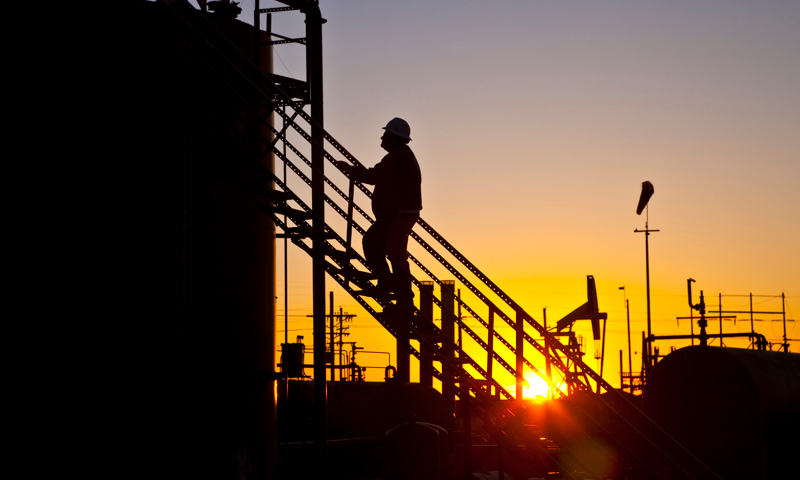
ExxonMobil and Total are in negotiations over their massive LNG projects in Mozambique, with each seeking to extract more gas from a shared field that straddles the two developments and cut costs.
The talks between the energy majors also involve the Mozambican government, according to the sources, as it has to give final approval to any new agreement.
The field that straddles the projects happens to contain gas that is thicker and therefore cheaper to extract and convert into LNG than reserves elsewhere in the projects.
The volume each project could extract from the shared area was set out in a 2015 “unitization” – or resource-sharing – agreement. However, both U.S. major Exxon and France’s Total are now renegotiating that contract with each other, the sources said.
The companies are looking to cut costs wherever they can, bruised by a COVID-19-induced collapse in global oil and gas prices and facing a worsening security situation in Mozambique.
Across the industry, most companies have been forced to delay decisions on new LNG projects and write down investments in existing production plants, in stark contrast to last year’s record level of approvals for plants.
Success in the talks could be particularly important for Exxon, which still has to woo investors ahead of a delayed final investment decision (FID) on its $30 billion Rovuma LNG project, which the sources now don’t expect until early 2022.
The FID on Total’s $20 billion Mozambique LNG project was made in June 2019.
The current contract was signed by Eni and Anadarko. In 2017 Eni sold a stake in the Rovuma venture to Exxon, which is now the project operator, while Anadarko sold Mozambique LNG to Total last year.
It allows the projects to extract a combined 24 trillion cubic feet of gas from the “straddling” reserves, with a 50/50 share in phase one of development.
Now Exxon and Total are trying to rework the agreement to increase extraction from the straddling reserves as a way to boost efficiency and increase their projects’ annual LNG production, according to the sources.
“They want to use the cheapest gas first – which is the straddling resources,” said one of the sources.
Asked about the negotiations, an Exxon spokesman said: “As a matter of practice, we do not comment on third-party rumour or speculation.”
“ExxonMobil continues to actively work with its partners and the government to optimize development plans by improving synergies and exploring opportunities related to the current lower-cost environment,” he added.
Total said the operators of the two projects “continue working together to maximize synergies and optimize future phases of development”.
Mozambique’s state oil and gas company ENH, which owns 10% of Rovuma LNG, and 15% of Mozambique LNG, referred Reuters’ questions to the National Petroleum Institute (INP), the body that manages the nation’s energy development.
BOOSTING PRODUCTION
A Standard Bank study from 2019 said Exxon’s Rovuma LNG would use 15.1 Tcf of straddling gas reserves, above the unitization cap as it included gas reserved for domestic use and condensate, plus 6.4 Tcf of non-straddling reserves – to produce 15.2 million tons per annum (MTPA) of LNG.
Instead, the source said, Exxon wants to extract only gas from the straddling reserves, increasing the amount it can access from the shared area to around 20.1 Tcf, which would result in 7.9% higher production, at 16.4 MTPA, and lower unit costs.
This would mark a considerable efficiency gain for Rovuma’s phase one, projected by Exxon to last 25 years.
Mozambique LNG expects to produce the first LNG in 2024, delivering 12.88 MTPA of LNG in its first phase.
Reuters was not able to establish what Total wanted to change its straddling gas and LNG production figures to.
A fourth source said the two companies had been in talks for some time about how to cut costs and generate synergies at their projects, and confirmed Exxon was looking to increase annual LNG output.
In April, Exxon delayed its FID on the Rovuma project, which had been expected this year, as it prepared to make cuts to capital expenditure across its business amid diving oil prices.
The Mozambique government has said it expects Exxon’s FID next year, but all four sources said it may instead come in early 2022, in line with estimates from Oslo-based research house Rystad Energy which put it at 2022 or 2023.
In response to questions about whether the FID could be pushed to 2022 or 2023, Exxon said: “We continue to work closely with the Area 4 partners, as Rovuma LNG is a complex project that will take several years to develop.”
Area 4 is the name given to Rovuma LNG’s license area.
SHADOW OF INSURGENCY
While Mozambique is impatient for the final investment decision to be taken, there could be advantages for Exxon in pushing it out to 2023.
It would mean the company wouldn’t produce its first LNG from the project until around 2028, giving more time for demand to bounce back after the drop caused by the pandemic.
However, the plans are being laid under the shadow of an insurgency on the projects’ doorstep. The security situation has worsened this year and the group, which has links to Islamic State, has seized and held strategic locations including a town just 60 km from the gas developments.
Analysts warn the group’s capability to strike the projects themselves is increasing, though it is still unlikely.
One of the sources, a Mozambican gas industry official, said the insurgency was a major threat to the oil majors.
“The investment will not be viable without security,” the official said.
Source: Reuters


